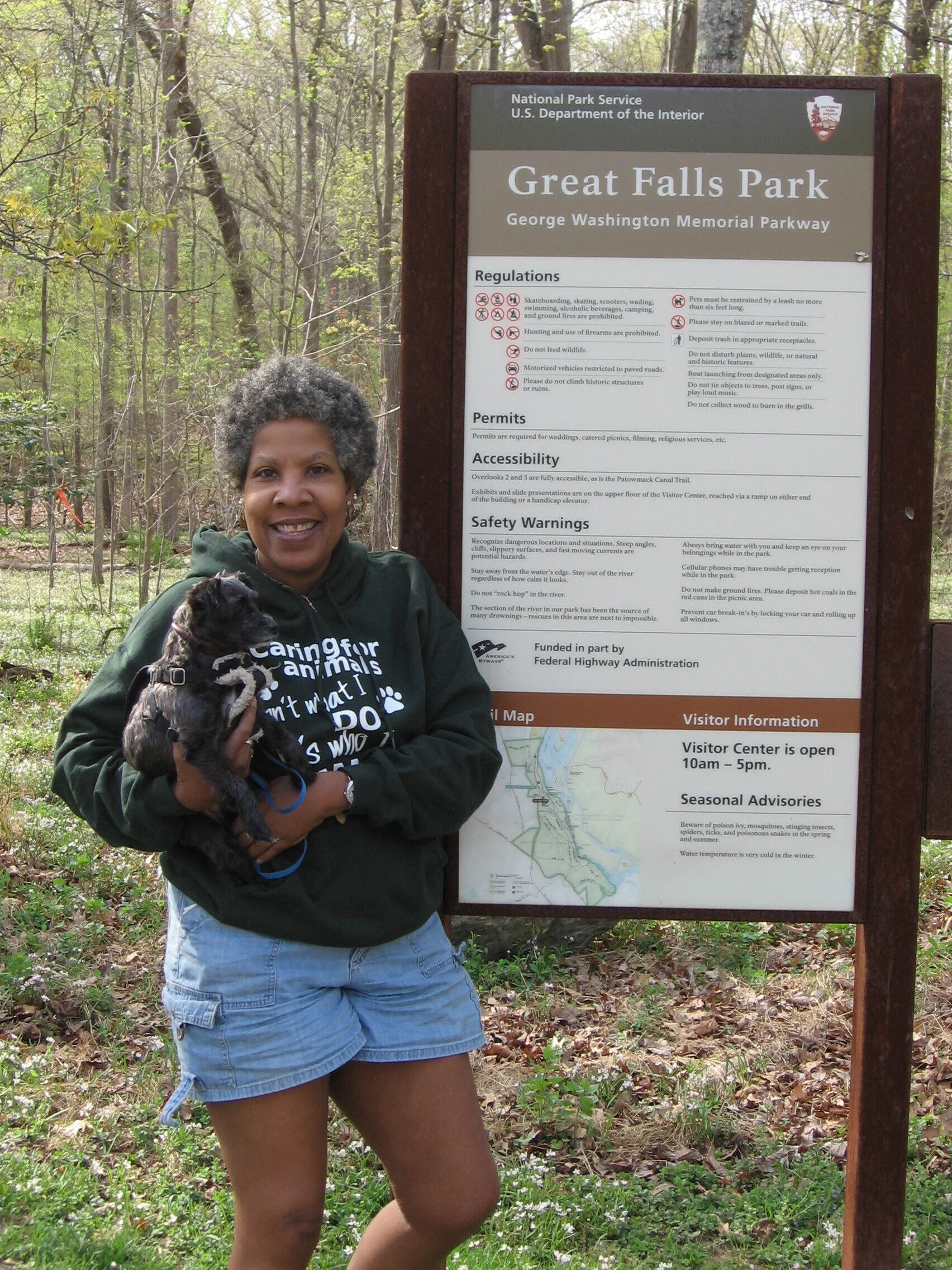Photo: Courtesy of Melody Mobley
By Lisa Mackem
The first Black woman professional forester in the agency’s history, Melody Mobley, recently joined Audubon Society of Northern Virginia. Melody is a 28-year veteran of the Forest Service and loves its ethos of “delivering the greatest good to the greatest number of people for the longest time.” Her experience, however, revealed that the Forest Service often fails that ethos. Rather than caring for land and serving people, Melody sees the Forest Service leaning toward commodity protection. “Timber and range rule the agency and logging and growing cows are the priority. They get more funding than staff that deal with endangered species and forest protection,” says Melody, expressing concern that environmentally conscious people do not manage the Forest Service. “We have to use our voices to change that.”
Melody Mobley
Melody wrote about her experiences with the Forest Service in the article, “A Black Woman Who Tried to Survive in the Dark, White Forest,” published in the Mountain Journal on August 1, 2018. A film documentary about her, “The Starya Project,” is in progress. Melody is part Cherokee and “Starya,” which means “Stay strong,” is her Cherokee name.
The US Dept. of Agriculture, a mostly white male organization that Melody calls the last plantation, oversees the Forest Service. It recently refused to comply with Melody’s Freedom of Information Act (FOIA) request for the Forestry Service’s number of Black foresters, although the information is public. After enlisting VA Senator Kaine’s help, Melody found only six Black woman foresters. Melody herself recruited the first Hispanic head of Law Enforcement and first female Law Enforcement special agent, although it was not her job. “I did it just by meeting people and knowing they had the qualifications to do a good job, and by talking about that position in the Forest Service and the benefits,” said Melody. “If I could do that on my own, surely the hiring personnel could do better. But the Forest Service doesn’t welcome everyone, and people leave because they get treated so badly.”
Melody takes pride in her large-scale projects and career achievements. She mended the relationship between the Forest Service and Hopi Tribe, worked with large-scale watershed restoration and wrote the first threatened and endangered species survey for the Ocala National Forest. She also experienced racism and sexism, much of which she detailed in the Mountain Journal article. The Forest Service retaliated against her for filing an Equal Employment Opportunity Commission (EEOC) complaint by taking away her work and giving it to white men. She endured job-related physical and verbal abuse and even rape by a fellow employee. Melody retired from the Forest Service at age 46. Her doctor certified that her toxic work environment caused her depression and severe low back pain.
Today, Melody is passionate about working with young people and promoting environmental causes. She volunteer-teaches science and math at two elementary schools, and leads two schools’ science clubs. She wants children to go into the field and learn about trees and native vegetation. “The outdoors must be a welcoming place,” says Melody, who has felt unwelcome in some outdoor settings. “We need to get the word out that recreational places exist. A lot of minorities don’t realize those places are there, and people can have fun in them.” Melody hopes to participate in nature walks, learn about birds and write letters to her representatives to promote environmental causes. “The Forest Service could be a wonderful place to work, and the majority of its people are good,” she says. She plans to continue pressuring her congressional representatives to prioritize environmental policies in funding, and hopes that the Forest Service’s culture will become welcoming and inclusive for everyone.


